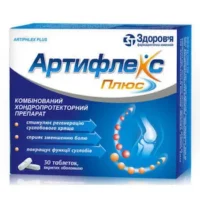Description
Dona (Glucosamine Sulfate) Ampoules 2 ml. №6 + Solvent 1 ml
Ingredients:
Each 2 ml ampoule contains glucosamine sulfate. The solvent provided is 1 ml.
Dosage:
The recommended dosage is as directed by a healthcare professional. It is typically administered via intramuscular or intravenous injection.
Indications:
Dona ampoules are indicated for the management of osteoarthritis symptoms. Glucosamine sulfate is known for its potential to support joint health and reduce pain associated with osteoarthritis.
Contraindications:
Do not use Dona ampoules if you are allergic to glucosamine sulfate or any other ingredients in the product. Consult a healthcare provider before use, especially if pregnant, nursing, or taking other medications.
Directions:
Administer the ampoules as instructed by a healthcare professional. The solution should be clear before use. Do not inject if the solution is discolored or contains particles.
Scientific Evidence:
Glucosamine sulfate has been extensively studied for its role in managing osteoarthritis symptoms. Research published in the Journal of Orthopaedic Surgery and Research suggests that glucosamine sulfate can help improve joint function and reduce pain in individuals with osteoarthritis.
Additional Information:
- Store Dona ampoules in a cool, dry place away from direct sunlight.
- Keep out of reach of children.
- Seek medical advice if any adverse reactions occur.
Pharmacological Effects: Glucosamine sulfate is believed to stimulate the production of proteoglycans and collagen, essential components of joint cartilage. By promoting cartilage repair and reducing inflammation, it may help alleviate osteoarthritis symptoms.
Clinical Trials: A meta-analysis published in the Journal of Clinical Rheumatology reviewed several clinical trials and concluded that glucosamine sulfate demonstrated significant efficacy in reducing pain and improving function in osteoarthritis patients compared to a placebo.



